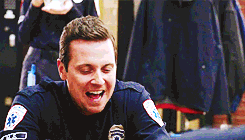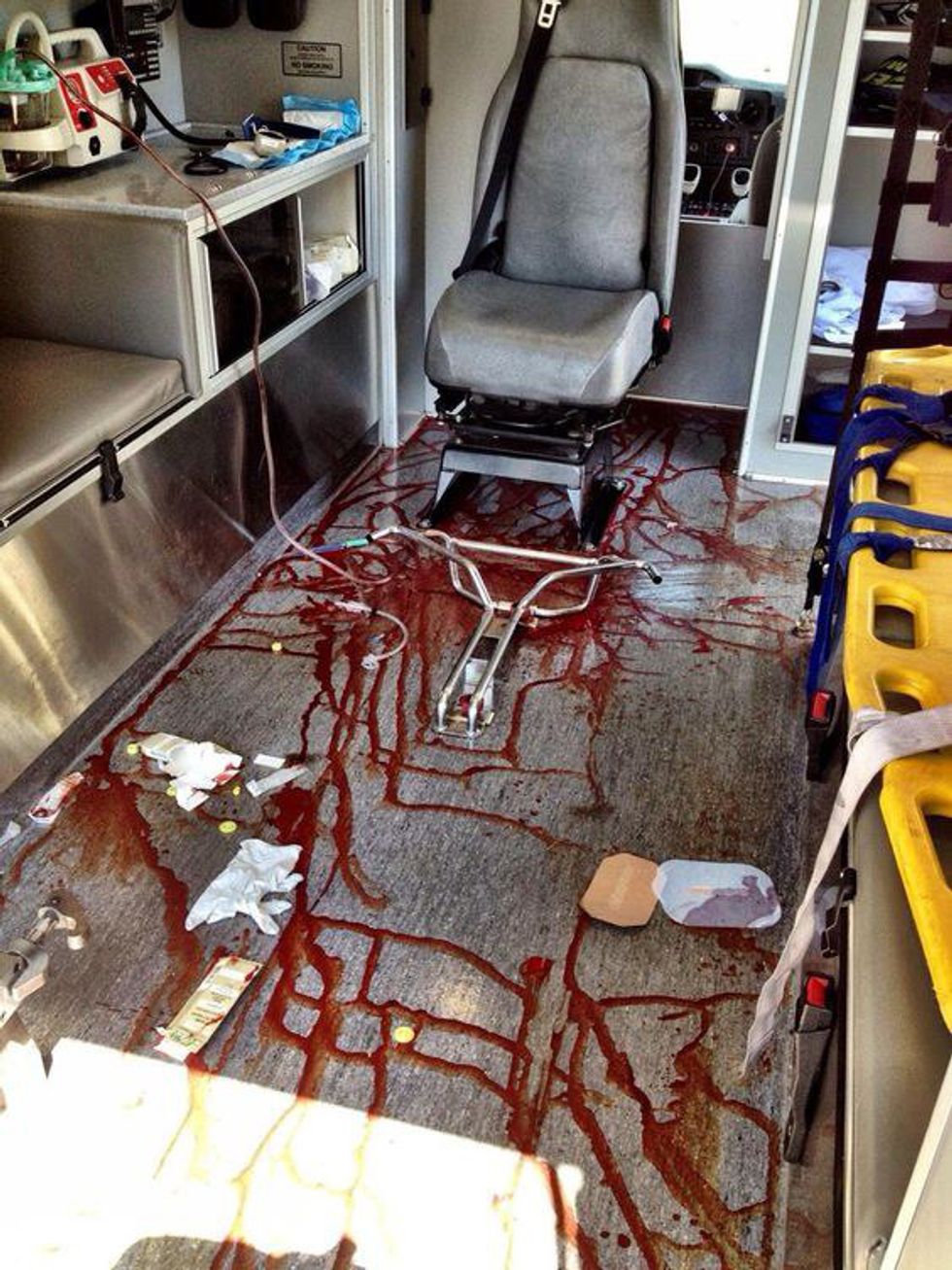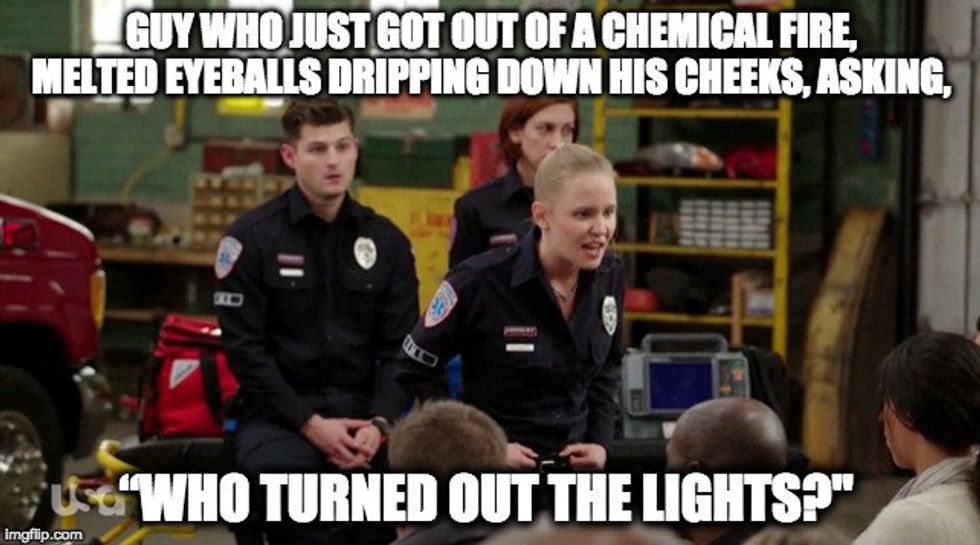I took my first EMT class my junior year of high school 4 years ago through a program called Opportunities in Emergency Care (OEC). The beginning of my career and my path in EMS has been as unconventional and unique as the class I took. Most high schools don't offer EMT classes but my high school happened to be a Health Science Magnet School. After 3 years of being an Emergency Medical Responder (EMR) through this program, I finally took my EMT written exam on my 19th birthday. I passed!
Flash forward to a year later, I’m a fully functional EMT working in an ER at Urgent Care and on an ambulance crew. I couldn’t be more blessed! However, it really took a lot to get to where I am today, and there are a lot of things I wish I knew before becoming an EMT, especially being one so young. If you're looking to pursue EMS and all the good, the bad, the ugly and, most importantly, the beautiful...then keep reading, friends.
On the eve of my 20th birthday, here are 19 things I wish I knew before becoming an EMT…
1. It’s really freaking hard to find a GOOD EMT job. (Sorry!)It's the simple reality for EMTs. Every service is different in some form or another, but mostly the jobs are in Basic Life Support (BLS) trucks or in the ERs within the cities. It’s hard to get on Advanced Life Support (ALS) trucks in the cities because they almost always look for primarily paramedics. This is what I've gathered from colleagues I work with in Minnesota, but, like I've said before, every healthcare system (big and small, ambulance or hospital) is different. It took me two months to find a job after getting my certification at the ambulance and 9 months for the ER. Be patient.
2. EMS is all one big family, and you have a ton of extended family everywhere else.
It’s all about the people you know. Also, with any other typical, huge family, people talk. A lot. Of course this depends on where you are. In Minnesota, the EMS system is a crazy small world and mostly everyone knows everyone who works within the system. Your connections can put good words in for you on applications and be great resources for mentorship from school to life and everything in between! Make sure you keep up a strong work ethic and harbor lots of enthusiasm to learn! A big contributor to this is finding a happy and healthy place to work. When you work with positive people who will be your teachers and greatest confidants, your work ethic is sure to benefit.
3.You’re going to make some dang awesome friends.
Pretty much everyone I’ve come in contact with, ER or Ambulance, has been truly amazing. Your work friends become your family and best friends in all the best ways. I’ve talked to mine regarding everything from boys to weird health questions and everything in between. You just pooped and you’re not sure if it’s normal? Snap a picture and your EMS buddies will gladly make a diagnosis! They might give you crap, but it’s all good crap, no pun intended.
4. Be eager to learn!
People understand that you're new and that asking questions is a given. There is such a thing as a dumb question, but dumb questions are needed to get you orientated. Always be enthusiastic and ask as many questions as you can! Chances are that there are things you've never seen, worked with, or heard of. The questions are limitless and so is your learning as you continue in medicine. Take advantage of every person's knowledge because they usually love dishing out thier wisdom for the new kid on the block.
5. Ask for feedback, always.
As mentioned before, being eager to learn involves asking some dumb questions, but it also requires you to ask for feedback after you start jumping into patient care and doing things without the supervision of your seasoned co-workers. DO NOT WALK IN THINKING YOU KNOW EVERYTHING. This is simply because you don't. There's always room for improvement. There's almost always something you can learn from one scenario that you can take to the next and be better for future situations after that. Take advantage of every opportunity that presents itself to you.
6.You're going to put in LONG hours, know how you stay busy and entertained without looking lazy.
Whether it was sports tournaments/games, working on the rig or in the ER; I always worked upwards of 12 hours a shift. The longest shift I ever worked was 72 hours (on-call, but still had to stay in town because home was 2 hours away). The best thing you can do to start preparing for this is meal prepping. Know your favorite (not messy) snack foods, and bring your own entertainment (whether it's a book, movies, or school materials)...ONLY IF YOU GET ALL OF YOUR NEEDED TASKS DONE FIRST. I Guarantee you'll work your tail off.
For example: At my ambulance job, it's almost dead all night most nights so I can usually get a good chunk of studying done, be able to stock the truck, get food, and/or watch movies at the house with my coworkers. At the hospital, I never watch movies or go out to get food because I'm not on-call, there's not really ever a good time for it, nor do I have the same freedoms like I do at the ambulance. However, if I don't have anything work-related to do, basically my checklist is all done and work study materials are completed, I like to write, read a bit, talk with coworkers, or refresh on some skills I might be getting rusty with.
7. You're going to work with great people, and some not so great people.
In every work place there's always the good, bad, and ugly. Some people you work with are wonderfully helpful, kind, and patient with you as you're first starting out. Others are the opposite and devour the young, fresh meat. Then there are others you just don't know how to interact with. But it's okay! Be yourself and stick to the good eggs, they'll teach you the best. Plus, like I said before, they'll become people you ask your weird poop questions to and they'll become your family in no time.
8. ALWAYS clean the truck after calls.
This is more directed to ambulance-based EMTs, but I'm not telling you this because it is part of your job description to help clean and stock the trucks after you use them on a call. I've found it's extremely therapeutic after a call that shakes you up or shocks you a bit. It took me almost 20 minutes to completely clean and stock a truck once after a big car accident, and I'll be honest, it shook me up a little. It's like you're cleaning away the stress and trauma from the call and putting it behind you into the garbage (or sharps containers because we like to be safe). If your service doesn't have Vehicle Inventory Technicians (VITs), you should try it. After calls that make the back of your rig messy, it's always a good choice. Make it a team effort.
9. You're going to experience all kinds of events, but nothing can prepare you for traumatic ones.
There are events you're going to experience with all of your senses, especially working in the ambulance. You're almost always the first ones on scene, so you'll usually see the brunt of things. You probably won't forget the first time you hear something explode on scene or people cry for their loved ones involved, hold a completely broken body part as it may fall limp in your hands, feel the radiating heat from a burning car, and so much more. I'm keeping it pretty light, but you may see much darker and more gory unfortunates.They're scenes you're not used to and that's okay. Just remember to reach out and talk to people you trust, especially the crew you work with on that call. There's nothing better than getting food with your crew and watching movies until 4am, if that's what it takes. It's what helped me.
10. Know what helps you de-stress and decompress from stressful situations.
Whether it's working out, writing, reading, doing an art project, going for a drive, watching movies or whatever helps you cool off and calm down, know what helps you recharge. You're going to see some serious stuff happen in this field and it's not going to be pretty. A lot of people in EMS have their own way of decompressing after particularly negative calls, and you should find out your best tactics too. My first fatality hit me hard, but I'm glad I had the support and love from a good system of friends, colleagues and family I could talk to; as well as movies, sleep, dance parties, hugs, and food. You do you, and take the time to relax!
11. Leave your personal problems at home and your work problems at work.
This can get really hard, especially if you experience significant trauma. It takes time to develop a work-mode on and off switch. I usually would say a sentence to myself, something along the lines of, "Leave your problems at the door, time to work". You can't afford to zone out and potentially make serious mistakes, being that they can and might come back to bite you. Of course, we're human and sometimes our humanities get the best of us, but if you're having an exceedingly difficult time with something and cant seem to get into work mode, go talk to someone. Your supervisor/director/head honcho is there to help you. Reach out and know your resources. This rule also goes for relationships in or outside the workplace. Keep it professional and focus on the most important thing, your patients.
12. Don't blame yourself for things that aren't your fault.
This is especially true when it comes to fatalities in the field. There are times when CPR may not help or no matter many times you realign the airway, they're not going to pull through. It may be for reasons you just can't see. Blaming yourself doesn't always have to happen with death either. It can even be the small things you blame yourself for...like not being able to start an IV on someone who really needs it and needing the medic to take control, or not being able to do anything to help a patient feel even remotely better. It happens, but don't let these things get to you. Try to think of these times as ways you can pay it forward to your next patient. Sometimes you can't do it all.
13.You're treating more than just the condition.
You're in a profession where you care for people on an atypical day, and probably the worst of their lives for some. I've come to find over time that I knew I was in the right place when I almost cried the first time a patient asked to hold my hand, or when I realized that seeing the tears stop or their face soften as their pain subsided. It's really all about being passionate about the care you give and about the people you serve. They're more than just a name on a label. People are so interesting because each person you care for has a different story. You might say something that makes their eyes light up and want to tell you a story about their life. Cherish these moments! You might not make a little old lady's wish of swimming in a pool full of noodles happen, but go the extra mile to make your patients smile during their time in your care.
14. Be careful about doing prolonged activities where it takes a bit to get ready and go, especially when you're on call.
This especially includes showering at the on-call house, the station, and really wherever! God knows when you're settled in and just getting the shampoo in your hair, the pager decides to serenade you with the sound of your people, and you almost die hopping out of the shower to get dressed and go. Sleeping is a little different because you can usually get away with laying out your pants, sleeping in shorts, and leaving your boots near the bed or door with the laces loose so you can get into them quicker. It gets interesting sometimes, but know how to prepare yourself for that. You know better than anyone what's faster for you in regards to getting ready at the drop of a hat.
15.You probably won't be able to talk to your friends about work.
Being an EMT is exciting and you get to experience a variety of unique situations a lot of people don't normally encounter on their typical work day. Know your crowd, and talk to people you know understand you and your line of work, being careful not to violate the Health Insurance Portability and Accountability Act (see below). Since I have two EMT jobs, I can share stories with my coworkers. My mom is a nurse and my roommate is an EMT too, so having resources you can share your stories with in your field is extremely helpful. You'll find your people and try not to get to in depth if its gory and make your crowd a little squeamish.
The Health Insurance Portability and Accountability Act (HIPPA) was founded in the mid-late 90's to establish confidentiality and privacy for patients. This is critical to you as a healthcare provider because if you violate this law, you can and will get into serious trouble. Some of these punishments, according to the American Medical Association (AMA), for violating HIPAA can include but are definitely not limited to; revocation of your license/certification, job termination, hefty fines and even jail time. Ouch. You will receive HIPAA training, but for now just be mindful when you tell a story from work. Keep it as vague as possible and not including ANYTHING that can identify the patient. This includes name, address, insurance, financial information, and place of incident just to name a few. I know I didn't list them all, but there is more so pay attention during your HIPAA training and ask your coworkers about how they tell their stories without violating HIPAA.
16.This may be a stepping stone to something bigger or might even be a lifelong career.
According to Kelly Grayson, a critical care paramedic in Louisiana and a writer for EMS1.com, the average career expectancy of an EMT is 5 years. However, this definitely isn't the case. I work with EMTs who have been in the field for upwards of 10 to 20 years, so it really depends on what you're wanting to do and your personal experience in the field. Staying an EMT definitely isn't settling. If I could stay an EMT forever, I would. I absolutely LOVE what I do. I, personally, could stay an EMT, but my EMS career as an EMT will most likely only last me through medical school if I can manage it. But hey, eight years is still three years longer than the average according to Grayson. People who work in EMS share a great love for this line of work and that's what makes what we do special. Whether it's a lifetime career or simply a stepping stone, they'll be the best years of your young adult, working life. I know they'll be the best of mine and I'll have made lifelong friends with plenty of people that will have my back in the years to come.

























